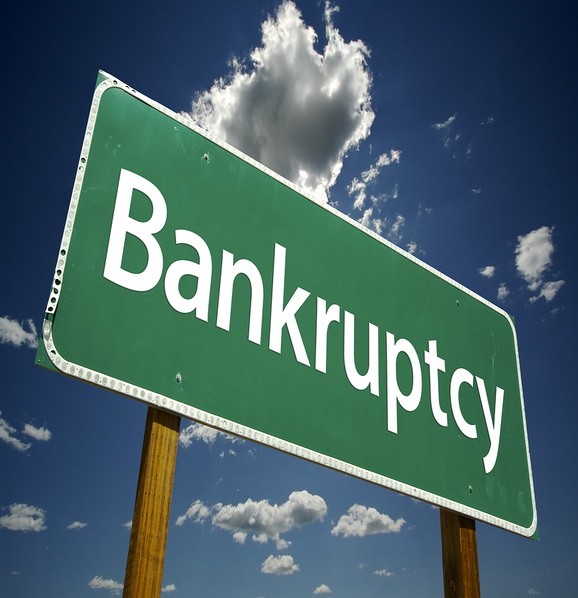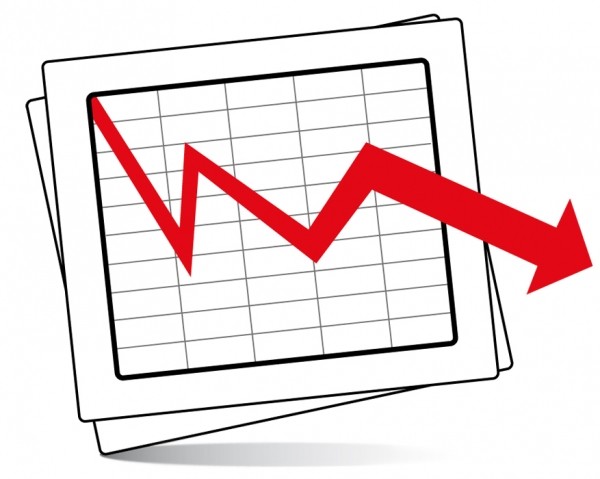What Happens When a Bank Goes Bankrupt
Post on: 5 Май, 2015 No Comment

History
The stock market crash that began on October 29, 1929 is typically credited with being the beginning of the Great Depression. More than 700 U.S. banks failed within a year of the stock market crash, and more than 9000 banks would fail during the 1930s. Millions of Americans lost their savings and confidence in the banking system was destroyed. Congress passed the Banking Act of 1933 which established the FDIC in order to help restore consumer confidence in the nation’s banking system.
Seizure and Transfer
When a bank is no longer viable — that is, when its reserves fall below the statutory amount, or there are significant problems with the bank’s management — the state or federal agency that chartered the bank revokes that charter. It takes this action in close coordination with the FDIC, which usually finds another bank to assume the failed bank’s assets and liabilities. The failed bank generally learns of the charter revocation at the end of business on a Friday afternoon, when dozens of FDIC agents arrive at the bank and its branches to seize its assets and liabilities and transfer them the acquiring bank.
Liquidation
If no other bank will agree to acquire the failed bank’s assets and liabilities, the FDIC will liquidate them. In this case, services to account holders may be disrupted during the liquidation process — ATM cards will not work and checks presented for payment will be returned to the payee marked Bank Closed. The FDIC will issue each depositor a check for the value of their account(s), to a maximum of $250,000 per depositor. Assets like loans receivable are sold to other institutions.
Identification
The FDIC utilizes public forums such as the local news media, posted notices and town meetings to notify the public when a bank fails. The FDIC also attempts to notify each of the bank’s depositors in writing by mail as soon as the bank is closed. Notifications are sent to the most current address available from bank records. This notification is mailed immediately after the bank closes. In most cases, the branches of the failed bank open for business as usual the following Monday, under the ownership of the acquiring bank.
Effects
The FDIC facilitates the acquisition of a failed bank by another bank whenever practical. The acquiring bank is also required to notify depositors by mail when a failed bank is acquired. This typically occurs along with the first bank statement following the acquisition. The transition usually causes no disruption of service, and the only change noticed by depositors is the name on their bank.
References
Resources
More Like This
What Happens to My Safe Deposit Box If My Bank Goes Bankrupt?
List of Banks in Trouble of Going Bankrupt
You May Also Like
You can store personal possessions, legal documents, jewelry and even cash in a bank safe deposit box. When a bank becomes insolvent.

Annuities are investment vehicles that are often used by individual investors to supplement their retirement income. The investor pays a fixed amount.
Frozen bank accounts can have a devastating effect on your finances, making it impossible for you to use your debit card, write.
Stock market investors who are still new to investing but who have never experienced a serious crash in the markets may not.
When a property owner fails to make payments on his home mortgage, the bank may foreclose on the home. Foreclosure refers to.
Bank mergers bring benefits to banking entities, shareholders, employees and account holders. Banks that merge can cut expenses, and this enables banks.
Foreclosure happens when homeowners are unable to make several monthly payments on a mortgage. In foreclosure, the bank or another type of.
Declaring bankruptcy is a huge problem for those trying to rebuild their credit. Part of this rebuilding is responsibly paying bills on.
Variable annuities are a type of life insurance contract that people can own directly or hold in brokerage accounts. Neither the federal.
Government regulators shut down insolvent banks, but loans owed to failed institutions by borrowers do not cease to exist when the bank.














